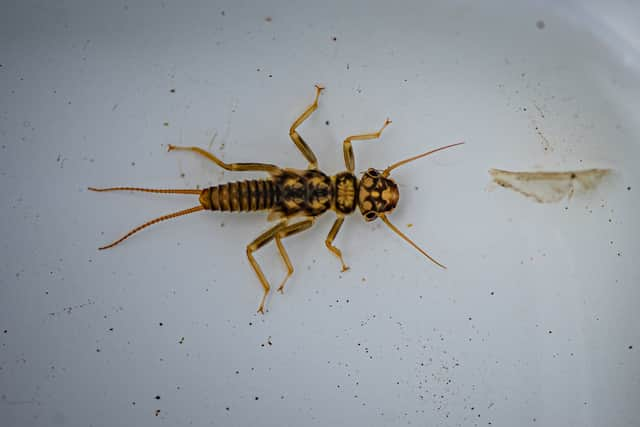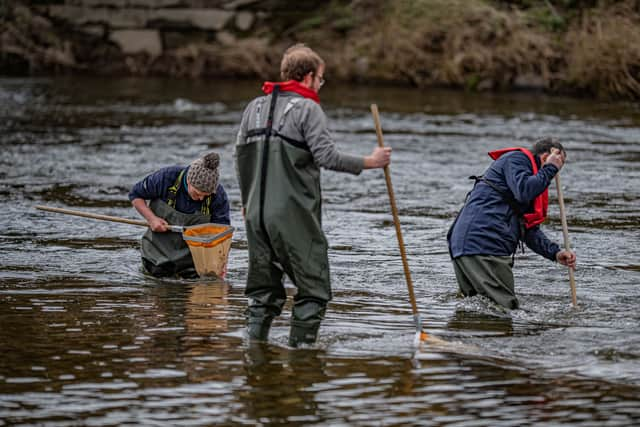Scarce yellow sally stonefly: UK insect feared extinct 'comes back from the dead' after 28 years
and live on Freeview channel 276
Pioneering conservation work at a UK zoo means an insect once feared extinct could now come back from the dead - but not until Britain's waterways are in better health.
The tiny river stonefly species, known as the 'scarce yellow sally', was thought to have died out back in 1995. But scientists last year launched a mission to try and save them after two small populations were rediscovered in a stretch of North Wales' River Dee.
Advertisement
Hide AdAdvertisement
Hide AdNow, for the first time ever, the critically-endangered creature has been successfully bred by a team of aquarists at Chester Zoo. Conservationists collected a small number of stoneflies from the area, and thirty of the tiny insects were transferred to the zoo - where specialists set about meticulously studying their lifecycle.
Experts believe this is the first time ever the species has been successfully bred and reared through its complete lifecycle outside of its river habitat.


Chester Zoo aquarist Joe Chattell told SWNS: “When just 30 scarce yellow sally stoneflies arrived at the zoo, the scientific data on the species was extremely limited.
"They were so few in number and, living for a period of just four to six weeks as adults, we really had no room for error in our efforts to save them," he continued. "We had to learn as much as we could, as quickly as we could, to help them back from the brink."
Advertisement
Hide AdAdvertisement
Hide AdScientists had to replicate "every tiny detail" of their natural environment - highly-oxygenated riverbeds caused by water passing over cobbles - in their custom-made breeding facilities.
"We then tweaked the lighting and temperature conditions each day to mimic a normal 24-hour cycle, while also including seasonal variations – a lot of intricate work goes into saving a tiny insect from extinction," Mr Chattell said.


The plan is eventually to start returning the stoneflies to the British Isles, but experts could not do so until its waterways were in better shape. Buglife Cymru manager Clare Dinham said the species is "highly vulnerable to habitat loss, pollution incidents from sewage and litter, as well as climate change".
"The stoneflies need highly oxygenated, clean water to thrive so it’s important that their habitat in the River Dee is protected – especially as it’s currently the only known location in the UK for this species," she added.
Advertisement
Hide AdAdvertisement
Hide AdMs Dinham said that with new funding awarded by the National Lottery Heritage Fund, they would now be carrying out further surveys for the scarce yellow sally stonefly along the Dee, including looking at sites it was once recorded with re-introduction in mind.
“We were thrilled when Chester Zoo came on board as a partner in the project and they have achieved amazing results with their conservation breeding efforts, providing unique insights into the ecology and behaviour of this iconic Welsh species."
She added: "We’re looking forward to working with them over the next four years on this exciting project."
Sewage contamination in the UK's waterways has been an ongoing problem. A Greenpeace investigation recently revealed almost 1,200 sewage overflow pipes were discharged in areas that were supposed to be officially protected under conservation rules, for a cumulative 300,000 hours last year.
In Wales, the River Usk and River Wye both saw thousands of hours of sewage discharges.
Comment Guidelines
National World encourages reader discussion on our stories. User feedback, insights and back-and-forth exchanges add a rich layer of context to reporting. Please review our Community Guidelines before commenting.
